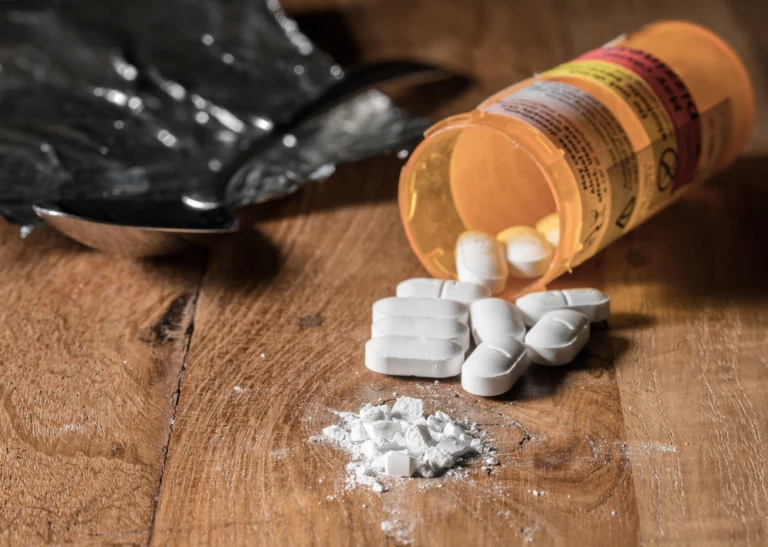Navigating the path to recovery can be a complex journey, especially for individuals facing both mental health disorders and substance use challenges. These conditions often interact in ways that make recovery more difficult if they are treated separately, which is why a comprehensive approach is essential. Dual diagnosis treatment provides that approach by addressing the whole person rather than focusing on one issue at a time.
Dual diagnosis treatment, like the kind that can be found at Knoxville Recovery Center, integrates care for mental, emotional, and physical health, recognizing how closely these areas are connected. Through this holistic model, individuals are better equipped to manage their symptoms, build healthier coping strategies, and sustain long-term recovery. In the following sections, this article will explore the core principles of dual diagnosis treatment, highlight its unique benefits, and outline the resources available in Knoxville, Tennessee, to support those seeking a more balanced and effective path toward healing.

Understanding Dual Diagnosis Treatment
Defining Dual Diagnosis
Dual diagnosis, also referred to as co-occurring disorders, occurs when an individual experiences both a mental health disorder and a substance use disorder at the same time. Because these conditions are so closely intertwined, recovery can be especially challenging without the right kind of care.
Dual diagnosis treatment is specifically designed to meet these challenges by addressing both disorders in a coordinated and comprehensive way, rather than treating them separately.
This type of treatment acknowledges that mental health struggles often fuel substance use, and substance use can, in turn, worsen underlying mental health conditions. By providing dual diagnosis treatment, clinicians can create personalized care plans that target the root causes of both issues, offering therapy, medication management, and support services that work together for lasting recovery.
An individualized approach is critical in dual diagnosis treatment, as no two people experience the same combination of symptoms or life circumstances. Tailoring strategies to each person’s unique needs not only helps reduce the risk of relapse but also promotes holistic healing across mental, emotional, and physical health.
The Importance of Integrated Treatment
Addressing only one disorder while leaving the other untreated often leads to incomplete recovery, as unresolved symptoms of the co-occurring disorder can easily resurface and intensify the challenges of the first condition. For example, treating substance use without addressing underlying anxiety or depression may result in relapse, while focusing solely on mental health without tackling addictive behaviors can hinder progress.
This is why dual diagnosis treatment is considered the most effective path forward. By integrating care for both mental health and substance use disorders at the same time, dual diagnosis treatment provides a balanced, holistic framework for healing.
Rather than isolating conditions, it emphasizes how the two interact and ensures that neither is overlooked in the recovery process. With a dual diagnosis treatment plan, individuals have a greater chance of achieving long-term stability, improved mental wellness, and sustainable sobriety. This integrated approach creates a stronger foundation for recovery and helps individuals build healthier, more resilient lives. For further insight into how the team at Knoxville Recovery Center can help, discover our Integrated Treatment Plans.

Core Strategies in Dual Diagnosis Treatment
Comprehensive Assessments and Personalized Care
Core strategies in dual diagnosis treatment focus on addressing both mental health disorders and substance use issues through an integrated, evidence-based approach. One of the most important aspects of dual diagnosis treatment is the combination of therapies, such as cognitive behavioral therapy, medication management, and holistic practices like mindfulness or stress reduction techniques.
These strategies work together to help individuals understand the connection between their mental health and substance use while developing healthier coping mechanisms. Dual diagnosis treatment also emphasizes personalized care, ensuring that treatment plans are tailored to the individual’s specific diagnoses, history, and recovery goals. By blending medical support, therapeutic interventions, and lifestyle adjustments, core strategies in dual diagnosis treatment create a comprehensive path toward lasting stability and improved overall well-being. Let’s review the core strategies of dual diagnosis treatment:
- Initial Evaluation
A thorough assessment helps in crafting an individualized treatment strategy that caters to specific needs. - Coordinated Care
Integrated plans typically combine psychotherapy, medication management, and holistic methods tailored to individual circumstances.
Therapeutic Techniques
Therapeutic techniques play a vital role in the success of dual diagnosis treatment, as they provide practical tools for addressing both mental health symptoms and substance use behaviors. Approaches such as cognitive behavioral therapy (CBT), dialectical behavior therapy (DBT), and trauma-informed care are frequently used in dual diagnosis treatment to help individuals identify harmful thought patterns, regulate emotions, and build healthier coping skills.
Group therapy and family therapy also offer valuable support by creating safe spaces for communication, accountability, and shared healing. In addition, many dual diagnosis treatment programs incorporate holistic techniques—such as mindfulness, meditation, and exercise—to strengthen overall mental and physical well-being.
By combining evidence-based therapies with supportive and holistic practices, therapeutic techniques within dual diagnosis treatment create a balanced framework that promotes long-term recovery and personal growth. Let’s review the therapeutic techniques found within dual diagnosis treatment:
- Cognitive Behavioral Therapy (CBT)
CBT is key in helping individuals understand and modify behaviors and thought patterns contributing to substance use. - Dialectical Behavioral Therapy (DBT)
DBT addresses emotion regulation and builds effective interpersonal skills, proving beneficial for those dealing with dual diagnoses.
Ongoing Monitoring and Support
Ongoing monitoring and support are essential components of effective dual diagnosis treatment, ensuring that recovery continues well beyond the initial phase of care. Because mental health disorders and substance use issues are often chronic and cyclical, dual diagnosis treatment emphasizes long-term follow-up to prevent relapse and maintain stability.
Regular check-ins with healthcare providers, medication management, and participation in therapy sessions help individuals stay on track with their recovery goals. Many dual diagnosis treatment programs also offer peer support groups, community resources, and aftercare planning to provide continued encouragement and accountability.
By maintaining consistent monitoring and access to support, individuals are better equipped to handle life’s challenges without returning to destructive patterns. This sustained structure is what makes ongoing care such a vital part of dual diagnosis treatment, reinforcing progress and fostering lasting recovery. Let’s review again the ongoing monitoring and support that’s often associated with dual diagnosis treatment:
- Adaptive Treatment Plans
Continuous evaluation and adaptation of treatment strategies ensure they remain effective as symptoms and needs evolve. - Support Network
Building a robust support system, including healthcare providers, family, and peers, enhances the treatment’s efficiency and encourages sustained recovery.

Advantages of Dual Diagnosis Treatment in Knoxville
Local Expertise and Community Engagement
- Knoxville’s Specialty Facilities
Knoxville boasts numerous facilities with expertise in dual diagnosis treatment, providing personalized care bolstered by local community support. - Benefits of Communal Proximity
Being close to family and familiar environments can enhance motivation and offer substantial emotional support throughout recovery.
Comprehensive Support Services
- Holistic Treatment Approaches
Incorporating changes in lifestyle, such as nutritional improvements and physical activity, complements the treatment of mental health and substance use disorders. Check out our Holistic Treatment Options. - Access to Recovery Communities
Local support groups and peer counseling are pivotal in reinforcing long-term recovery efforts.
Common Questions About Dual Diagnosis Treatment
Challenges of Treating Dual Diagnosis
The treatment process is complex due to the interwoven nature of mental health issues and substance use disorders. Challenges involve accurate diagnosis, effective treatment plan development, and maintaining coordination between mental health and addiction professionals.
Enhancing Recovery Outcomes
Dual diagnosis treatment improves outcomes by addressing both disorders simultaneously, reducing relapse risks associated with untreated symptoms. This comprehensive approach addresses core issues and mitigates recovery barriers.
Expectations from Knoxville Recovery Center’s Dual Diagnosis Programs
At Knoxville Recovery Center, individuals can expect a comprehensive blend of evidence-based therapies, medical supervision, and strong community support, all delivered through personalized treatment plans.
Each program is carefully designed to address the unique combination of challenges that come with dual diagnosis, ensuring that both mental health disorders and substance use issues are treated in a coordinated and effective way.
Our center’s compassionate staff works closely with each patient to create customized programs that may include individual counseling, group therapy, medication management, and holistic approaches such as mindfulness practices or wellness activities.
By tailoring care to the specific needs of every individual, Knoxville Recovery Center provides more than just treatment—it offers a supportive environment where healing can take place on mental, emotional, and physical levels. This compassionate and thorough framework not only empowers individuals to manage their conditions but also equips them with the tools and resources necessary for long-term recovery and lasting stability.

Advancing Toward Holistic Recovery in Knoxville, TN
Dual diagnosis treatment offers a comprehensive and effective path to recovery by addressing the intricate connection between mental health disorders and substance use. Through integrated strategies, evidence-based therapeutic techniques, and ongoing monitoring, individuals can build a foundation for lasting wellness and sobriety.
Unlike approaches that treat conditions in isolation, dual diagnosis treatment ensures that no aspect of recovery is overlooked, creating a more balanced and sustainable healing process. For those in Knoxville and beyond, accessing specialized dual diagnosis treatment can make all the difference in achieving long-term stability, improved quality of life, and renewed hope for the future.
Dual diagnosis treatment is crucial for those facing both mental health and substance use disorders. By addressing the entirety of an individual’s health, this approach fosters a solid foundation for lasting recovery. For residents in Knoxville seeking specialized assistance, the Knoxville Recovery Center provides expert programs tailored to your journey. Reach out today by calling 865-830-3967 to become part of our supportive community and receive guidance from experienced professionals.








